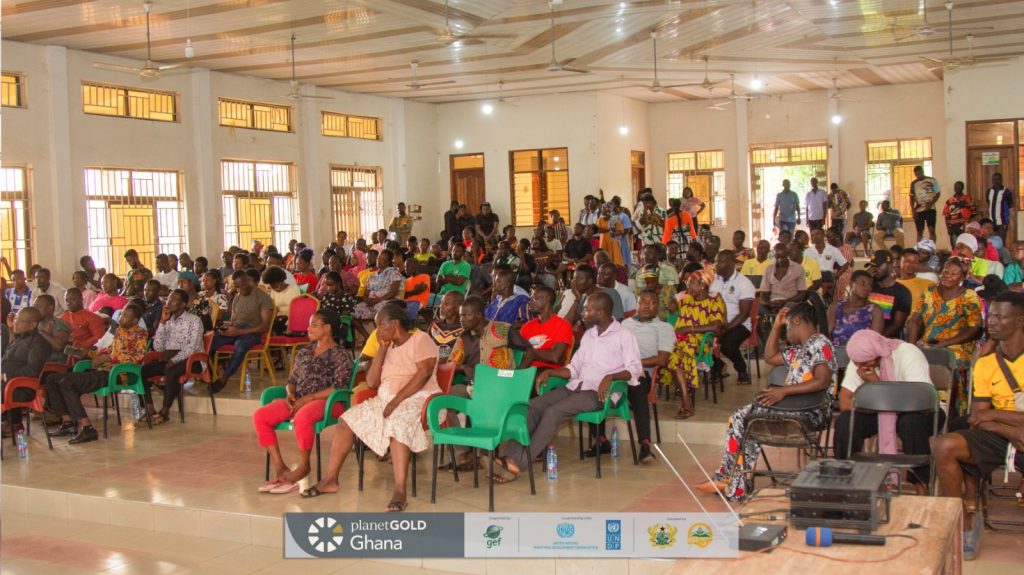By Hafsa Obeng
Accra, Oct. 21, GNA – The planetGOLD Ghana project has conducted several initiatives to raise awareness on reducing mercury exposure among artisanal and small-scale gold mining (ASGM) actors in selected districts of the Ashanti and Central Regions.
These efforts addressed the health impacts of mercury, the CRAFT Code, gender inclusivity, social license to operate, and the adoption of mercury-free technologies.
Some Metropolitan, Municipal, and District Assemblies (MMDAs) that benefited from the exercise include: Amansie Central, Asante Akim North, Amansie South, Amansie West, Bekwai, and
Adansi North in the Ashanti Region, and Upper Denkyira East (Dunkwa-on-Offin) and Upper Denkyira West (Diaso) in the Central Region.
The exercise was aimed at promoting mercury-free mining practices in line with Ghana’s obligations under the Minamata Convention on Mercury, support the formalization of the ASGM sector, advocate for the adoption of the CRAFT Code and responsible supply chains, and raise awareness on the health impacts associated with mercury use and available mercury-free alternatives.
It was also to sensitize actors on the necessity of establishing child labour-free mining zones, enhance understanding of gender responsiveness in mining and highlight the advantages of obtaining a social license to operate.
Mr. Lovelace Sarpong, Project Coordinator, planetGOLD Ghana, said the project, among others, aimed to minimize the risks posed by mercury use in the ASGM sector by improving sound chemicals management and eliminating pollution hazards while improving financial inclusion and transition to the formal economy.

He said it also sought to strengthen national and jurisdictional capacity to enhance Ghana’s compliance with the Minamata Convention following national environmental and formalization policies, alongside global platforms on mercury reductions, responsible supply chains, and mineral resource governance.
He said the project, funded by the Global Environment Facility (GEF) with support from the United Nations Development Programme (UNDP) and the United Nations Industrial Development Organization (UNIDO), had four main components, including optimizing formalization through Jurisdictional Approaches, accelerating financial inclusion and responsible supply chains, enhancing uptake of mercury-free technologies, and fostering knowledge sharing and local capacity building support.
Mr. Dawood Abbas, Environmental Protection Agency, Area Head for Konongo, underscored the importance of government’s environmental
regulations and EPA’s role in ensuring compliance within the ASGM sector.
He encouraged the miners to prioritize environmental stewardship to gain community trust and secure a Social License to Operate and reaffirmed the Agency’s commitment to enforcing commitments under the Minamata Convention.
Some Municipal and District Chief Executives acknowledged the importance of the sector to the local economy and entreated miners and other stakeholders to adopt mercury free gold processing technologies to reduce mercury exposure and protect public health and the environment.
GNA